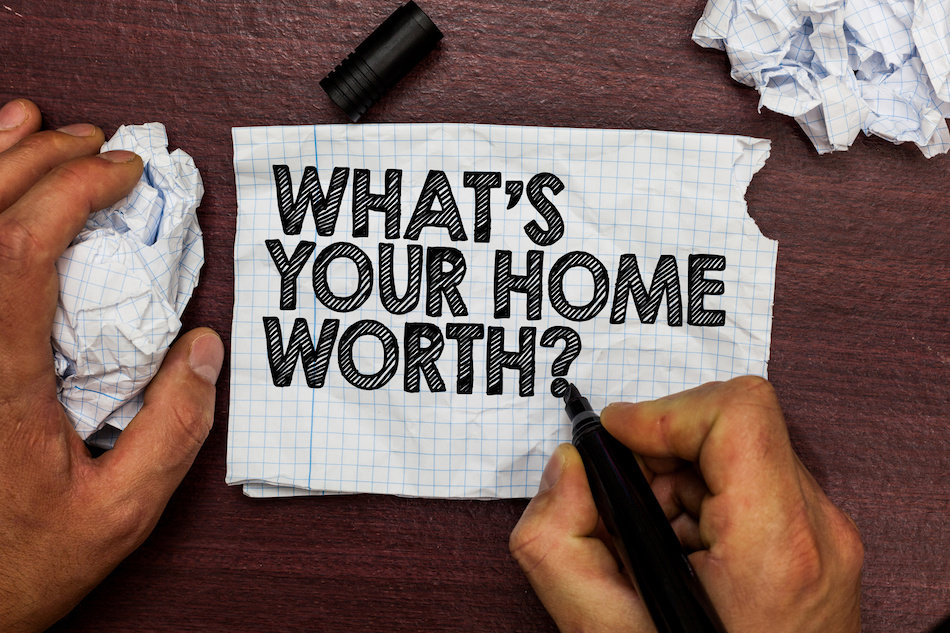How Much Money Do You Expect to Make When You Sell Your Home?
Posted by Justin Havre on Tuesday, December 11th, 2018 at 10:43am.
 If you're like many Calgarians, you're expecting to make a lot when you sell your home. A poll released by BMO and conducted by Pollara shows that 33% of the residential home owners here in the city believe that their home is worth twice as much now than it was at the time of purchase.
If you're like many Calgarians, you're expecting to make a lot when you sell your home. A poll released by BMO and conducted by Pollara shows that 33% of the residential home owners here in the city believe that their home is worth twice as much now than it was at the time of purchase.
The survey also shows that 32% of Canadians think that their home is worth double the amount they first invested into it. The results were also high in major cities across the country. In Montréal, 48% of those polled believe that their home is worth twice the amount while 43% of the residents in Vancouver and 42% of the home owners in Toronto believe the same thing.
Nationally, average Canadian homeowners are expecting to see a 62% ROI on the sale of their homes. They believe that their properties could sell for an average price of $369,968, which would translate into a $141,686 profit before fees and commissions are paid.
According to the report, Canadian prices for home sales have gone up 153% since 1994 and 78% since 2004. In Calgary, home owners are expecting to see a 47% ROI when they sell their properties. The average price that a Calgary home owner paid for a home was $308,541 while the expected sale price is $452,769. In Alberta, the average purchase price was $260,642 and the expected sale price is $403,287.
According to the BMO report figures above, the expected return on investment on a Calgary home is $144,228. The ROI for an Alberta home is $142,645.
Owning a home is one of the best investments that you can make in your lifetime. It's something that you can enjoy while at the same time watching it increase in value. It's a place where memories can be formed and where a family can grow.
For informational purposes only. Always consult with a licensed real estate professional before proceeding with any real estate transaction.
What Do Buyers Want To Pay For Your Home?
If you’re selling your home, you’ll have a very personal perspective on what it‘s worth. You’ll remember all the hours you put into making the backyard flower garden beautiful, or the work you put into renovating the basement, or the money you spent on installing new hardwood floors in the living room and hallways. It’s natural to want these improvements factored into the asking price.
However, potential buyers don’t have that same perspective. Although they may appreciate the improvements made to the home, buyers will only be interested in paying current market value for your property. That’s the price for which comparable homes with comparable features are currently selling in your area.
Buyers don’t see all the hours you spent on improvements and renovations. What they see, instead, are the final features: the hardwood floors, the freshly painted bedrooms, the sparkling new master ensuite. Features like these will certainly help sell your home faster and for the best price—but that price will likely be close to the current market value.
Now, it’s tempting to try to set a list price high above the current market value in the hopes that some buyer will appreciate all the time and money put into the property. But that strategy rarely, if ever, works. In most cases, pricing your home higher than comparable properties on the market only discourages potential buyers from viewing it: buyers expect to pay market price.
The good news is that the current market value of your home may be a lot higher than you think. The only way to know for sure is to have an experienced REALTOR® look at it and provide you with an estimate.
The FATAL Pricing Mistake Home Sellers Make
Price is the MOST important factor to consider when selling. So when pricing a home, should you list competitively, or should you speculate a bit and see if you will catch the “big fish”? Let’s take a look at both options.
What would happen if the real estate market suddenly shifted in favor of sellers, and you priced your home off comparable properties in your area that were now outdated (pricing it too low)? Well… in this case, you would likely have an offer on your home within a couple days and within 98-100% of your list price. You may even get competing offers and receive more than the original asking price. Your sale is now done and you can forget about it. You may have gotten $5,000 - $10,000 more in 30-60 days, but that is only a “may.”
What if you decide to speculate a bit and you list for a modest $10,000-$15,000 over the determined market value (assuming an average price of $400,000 for the sake of scale)? Either the stars will align and the perfect person, who is looking for a house like yours, will completely ignore the rest of the homes on the market and decide to pay more for your property out of pure bliss and emotion. Or it will sit for a while. No one knows how long for sure, but you will likely consider a price reduction before 30-45 days. If the market is moving up, then your home may sell in a few months when the market catches it, but what if it doesn’t?
When considering a home to purchase, buyers don’t look at price alone. They always want to know how long a property has been on the market. If it has been sitting, they want to know why, and automatically assume that something is wrong. Furthermore, when they first view a home and decide it is not for them (could be price, layout, etc.) even a price reduction rarely entices them to take a second look if they already feel that they don’t like the home. Finally, if you are forced to price reduce, this can be a slippery slope. After waiting for 30 days in a slower market, you will not be the only person who has reduced their price.
You will still likely be overpriced, as everyone who was priced ok originally, but is also now the victim of the slow market, is now lower priced than they were before (chasing the market down). You may now actually get less than you would have if it was originally priced lower, due to the stigma of your home and potential market fluctuations. It is now 90 days or more later. If you already bought another home, this can be a very stressful experience (two mortgage payments).
In the example of pricing too low, you sold very quick, got on with your goals and if the market went up, you hopefully bought again to take advantage of the increase. Yes, you may have left a few thousand dollars on the table. If you priced your house too high, you had to price reduce, you may have extra carrying costs (two mortgages), your home now has a stigma and if the market went up, you probably missed out buying again to take advantage of the increase. In fact, if the market went down (in the first example you had already sold), then you will have to keep reducing until it becomes more appealing than the other homes in the community.
The key to pricing a home is to look at your goals and assess how soon you would like it to sell. If you would like to sell quickly, then price your home 1-2 percent below market value to cushion yourself from fluctuations and to get on with your goals. At market value, you should expect to sell in the average selling time (depends on your market). But when you are overpriced, no one wins. It is like passing up a guaranteed cash pay out in a lottery to go for the big prize. You just might get it…. but at what cost, if you don’t?
Want to find out the current market value of your home? Give us a call today at 403-217-0003 or contact us through this website.
For informational purposes only. Always consult with a licensed real estate professional before proceeding with any real estate transaction.
